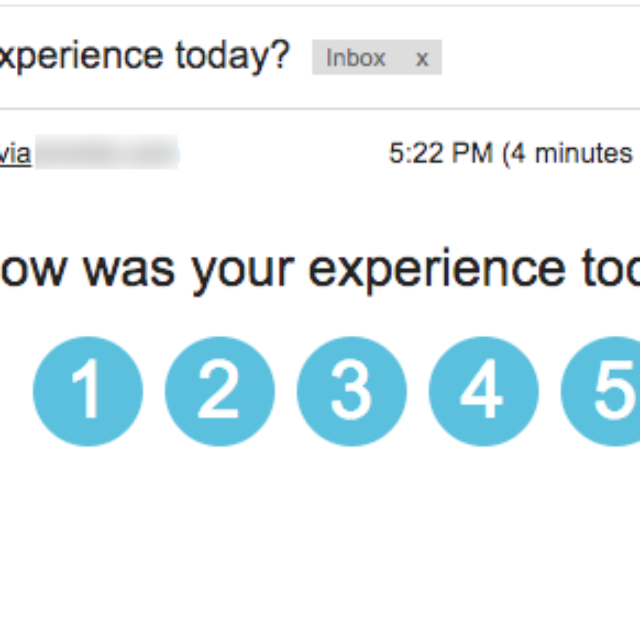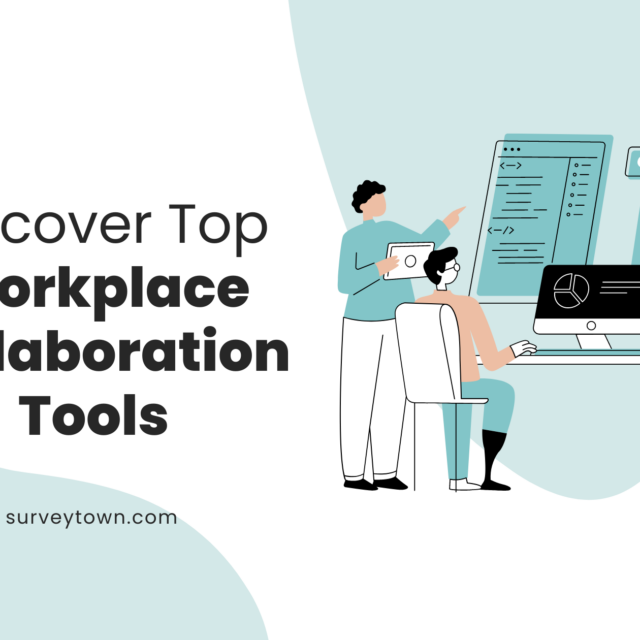In today’s fast-paced and competitive workplace, employee recognition has become an indispensable ingredient for achieving success in any organization. Gone are the days of simple gestures and token acknowledgments. Instead, organizations now understand the importance of truly valuing and appreciating their employees’ hard work, achievements, and contributions. The evolution of employee recognition has transformed it into a strategic practice that goes beyond surface-level appreciation. It has the power to drive engagement, boost productivity, and foster a positive workplace culture. By implementing effective employee recognition programs, organizations can tap into the potential of their workforce like never before.
Click here to learn all about employee recognition!
To stay ahead in this ever-changing landscape, organizations need to keep up with the latest trends in employee recognition software. These innovative tools provide seamless solutions for tracking performance metrics, managing rewards systems, facilitating peer-to-peer recognition, and much more. Plus, embracing social media platforms as part of your employee recognition strategy can amplify its impact even further. Keep reading to discover all employee recognition trends and a few helpful tips!
Current Trends in Employee Recognition
Staying ahead of the latest trends in employee recognition is crucial for creating an environment where your employees thrive and feel motivated to give their best every day. Let’s explore some of the most impactful trends:
- Innovative Software Solutions: Cutting-edge software solutions have revolutionized recognition programs. These tools provide seamless platforms for managers and peers to easily recognize outstanding performance. With features like real-time feedback tracking and customizable rewards programs, these software solutions take employee recognition to new heights.
- Personalized Rewards: A key trend in 2023 is personalized employee recognition. It emphasizes the importance of tailoring rewards and recognition to suit individual needs. By understanding what motivates each employee and offering personalized incentives, you can create a more meaningful and impactful recognition program.
- Focus on Engagement: Employee recognition programs have been proven to increase engagement levels. When individuals receive regular praise for their efforts, they become more engaged in their work, going above and beyond to achieve organizational goals. This increased engagement translates into improved productivity across the board.
- Talent Retention: In today’s competitive job market, organizations that prioritize recognizing their employees’ contributions create an attractive workplace culture that fosters loyalty among top talent while reducing turnover rates. Employee recognition plays a crucial role in talent retention strategies.
Implementing Employee Recognition Programs
To effectively implement employee recognition programs, consider the following key considerations:
- Understand Your Workforce: Take into account the demographics of your workforce when designing your recognition program. Tailor rewards based on individual preferences whenever possible.
- Incorporate Peer-to-Peer Recognition: Encourage collaboration and teamwork by incorporating peer-to-peer recognition into your program. This fosters a supportive culture where employees actively appreciate each other’s contributions.
- Timely and Specific Recognition: Ensure that recognition is timely and specific to the employee’s achievements. This shows that their efforts are valued and appreciated.
- Utilize a Mix of Formal and Informal Recognition: Cater to different preferences by utilizing a mix of both formal and informal recognition methods. This allows for a more comprehensive and inclusive program.
- Regularly Evaluate and Update: Continuously evaluate and update your employee recognition program based on feedback from employees. This ensures that it remains effective and aligned with the evolving needs of your workforce.
- Provide Training for Managers: Train managers on how to effectively recognize and appreciate their team members. This ensures that recognition is consistent and meaningful throughout the organization.

The Future of Employee Recognition
With advancements in software and technology, employee recognition has evolved into a dynamic system that goes beyond simple rewards. It is now a strategic tool that drives engagement, boosts productivity, and fosters a positive workplace culture. Statistics show that organizations with effective employee recognition programs have higher levels of employee satisfaction and retention.
In fact, research has found that companies with peer-to-peer recognition programs experience 41% lower turnover rates than those without such programs. So, what makes these new-age recognition programs so impactful? Let’s dive into some key ideas:
- Personalization: One size does not fit all when it comes to recognizing employees. The best programs allow for personalized rewards tailored to individual preferences and achievements. This level of customization creates a sense of value and appreciation among employees.
- Social Engagement: In today’s digital age, social recognition is becoming increasingly important. Employees want their accomplishments to be celebrated publicly within their organization. By incorporating social elements into your recognition program, such as an internal blog or social media platform dedicated to highlighting outstanding work, you can foster a sense of community and encourage collaboration.
- Continuous Feedback: Traditional annual performance reviews are no longer sufficient for driving employee engagement. Instead, real-time feedback is crucial for growth and development. Implementing regular check-ins between managers and employees allows for ongoing communication about goals, progress, challenges, and successes.
- Gamification: Adding gamified elements to your recognition program can make it more fun and engaging for employees while still maintaining its purposeful nature. By introducing friendly competitions or challenges tied to specific goals or milestones, you can create excitement around achieving targets while fostering healthy competition among team members.
- Celebrating Milestones: Recognizing major milestones, such as work anniversaries or project completions, is a great way to show appreciation for an employee’s dedication and commitment. By acknowledging these significant moments, you not only make the individual feel valued but also inspire others to strive for similar achievements.
The future of employee recognition lies in embracing these innovative practices. By implementing a comprehensive system that combines software solutions with thoughtful strategies, HR professionals can create a culture of appreciation and motivation within their organizations.
Choosing the Right Employee Recognition Platform
When selecting an employee recognition platform for your organization, consider factors such as ease of use, customization options, integration capabilities, customer support, and pricing structure. Top platforms in this space include Awardco, Guusto, Bonusly, and Worktango. Click here to discover what is the best employee recognition software for your company!
Real-Life Success Stories
Prepare to be inspired by these remarkable case studies of companies that have not only implemented employee recognition programs but have truly excelled in their approach:
Case Study 1
In response to the challenges posed by the pandemic, one forward-thinking company took a proactive step and revamped its recognition program. By leveraging virtual award ceremonies, they were able to create an immersive experience for their employees. Through personalized video messages from senior leaders, each individual’s contributions were acknowledged and celebrated. This innovative remote recognition program proved to be a game-changer, keeping employees engaged and motivated despite the constraints of remote work.
Case Study 2
Another organization recognized the power of peer-to-peer appreciation and decided to integrate it into its internal communication system. By incorporating social media-like features into this platform, employees were given the opportunity to publicly express gratitude for one another’s efforts. The impact was profound – fostering a culture of collaboration and support within the organization. This unique program has become a shining example of best practices in employee engagement.
These success stories highlight key trends in employee recognition programs: embracing technology through software integration, utilizing statistics-driven research on what motivates individuals, and implementing rewards systems that align with evolving market practices. It is clear that HR professionals who prioritize such initiatives are reaping significant benefits for both their workforce and overall organizational performance.
If you’re looking for ideas on how to enhance your own workplace culture or seeking guidance on implementing an effective employee recognition program tailored specifically for your organization’s needs, our blog offers invaluable insights from industry experts at the top of their field. Stay up-to-date with the latest trends and discover proven strategies that will help unlock your team’s full potential.
Remember: when it comes to recognizing your employees’ hard work and dedication, don’t settle for anything less than excellence!
Bonus Tip: Start Celebrating the Employee Recognition Day
Employee appreciation should be an ongoing practice, but selecting the perfect day to express your gratitude can have a profound effect on morale and satisfaction. In fact, celebrating it has become a sort of trend in the past years. Here are some ideal occasions for recognizing your exceptional staff:
- Work Anniversaries: Commemorate an employee’s work anniversary to honor their loyalty and dedication.
- Project Completions: Celebrate the successful completion of challenging projects to acknowledge your team’s hard work and accomplishments.
- National Employee Appreciation Day: Marked on March 4th each year, this dedicated occasion allows organizations to recognize and cherish their invaluable workforce.
While celebrating specific occasions is important, integrating appreciation into everyday company culture ensures consistent value throughout the year. Consider weekly shout-outs during team meetings or monthly awards ceremonies to publicly acknowledge outstanding performers.
Creative Ways To Show Appreciation to Your Employees
Showing appreciation to your employees doesn’t have to be generic or impersonal. Here are some creative ideas to make your employees feel truly cherished:
- Personalized Gifts: Present personalized gifts that cater to each employee’s unique interests and preferences.
- Team Outings: Organize team outings or activities outside of work hours to foster camaraderie and teamwork.
- Public Recognition: Implement an employee recognition program to publicly acknowledge outstanding performers during company meetings or through internal newsletters.
- Private Messages of Thanks: Send heartfelt emails or handwritten notes expressing genuine gratitude for individual contributions.
- Tailoring Appreciation: Understand your employees’ preferences and tailor your appreciation efforts accordingly.
By incorporating these innovative ways of showing appreciation into your company culture, you can cultivate a positive work environment where employees feel valued, motivated, and engaged.
Conclusion: Unlock the Power of Employee Recognition
By embracing current trends in employee recognition, you can create a work environment where individuals feel valued, motivated, and engaged. Personalized recognition, innovative software solutions, and a focus on engagement and talent retention are key to unlocking the full potential of employee recognition in your organization. Let’s revolutionize how you acknowledge and appreciate your workforce together.




